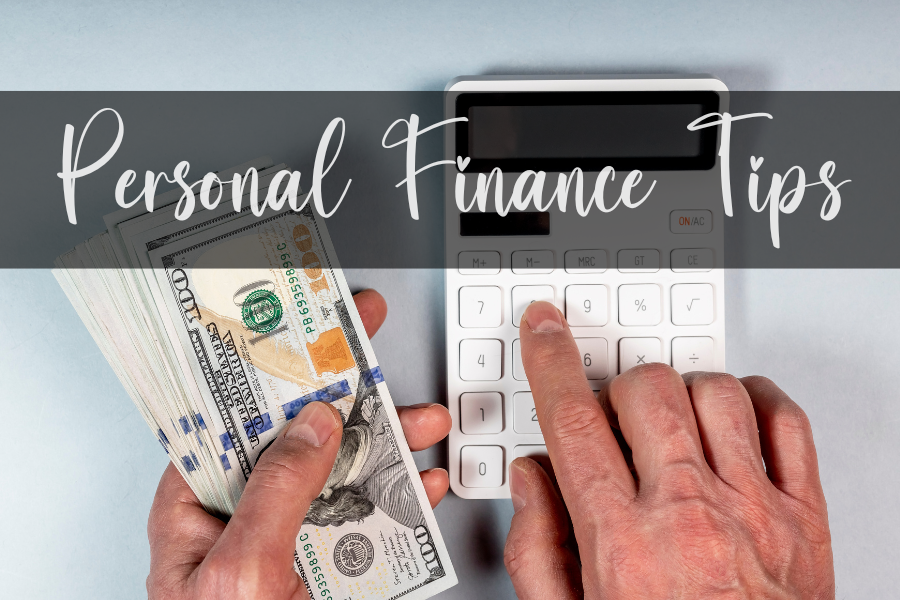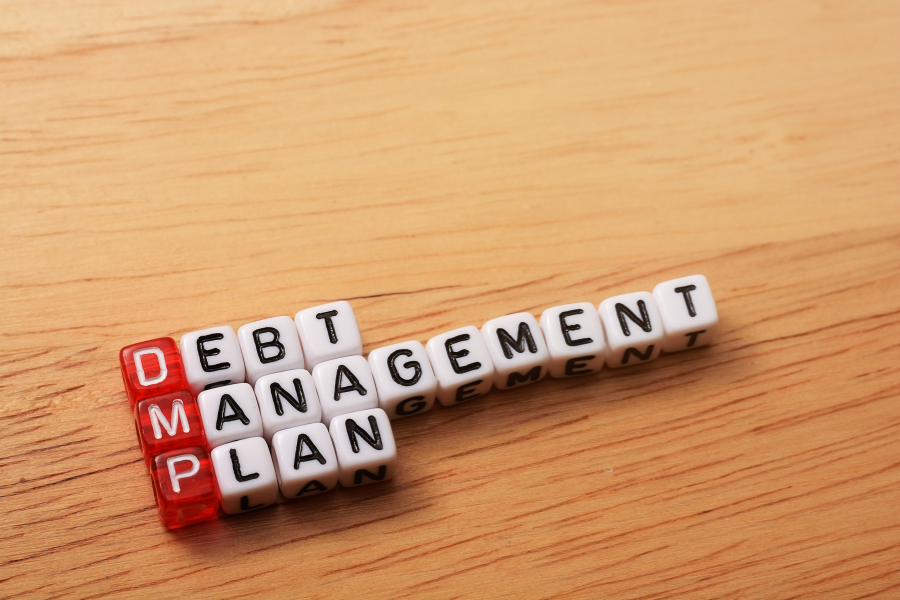This article may contain affiliate links. See our disclaimer for more information.

Personal finance is personal. How many times have you heard that? Well, it is! I’m here to give you the best personal finance tips I have found over the years to help you get your money in line.
Why is personal finance important? You need to be able to manage your personal finances effectively and efficiently. Without some guidelines, your finances can easily fall to the wayside which can leave you struggling and in financial despair. Have no fear! Here at Bunnies and Monies we want to help as much as we can.
Here are some of our best personal finance tips:
1. Assess Your Financial Situation

How can you work on your personal finances if you don’t know what your current financial position is? The first of the personal finance tips I have for you is to start figuring out exactly where you stand financially.
If you’ve read any of our other articles such as How to Pay Off Debt Quickly and How to Save 1000 Dollars you should now know that the first step is always to assess your finances.
Knowing where your finances stand puts you in a better position to start building your financial picture. This will help to set up your budget, know where you’re doing well and see areas where you need to improve.
To start, calculate your income and expenses, and then jot down and evaluate all of your assets and liabilities. This includes mortgage payments, car loans, investments and retirement accounts, among many other things.
Create a clear picture of your money trail; what’s going in and what’s coming out.
Now it’s time to assess. Are there areas you could improve in? Do you wish you had more savings? Write down whatever you see when you look over your finances. These will become your goals and will be looked at closer with our next tip.
2. Create a Budget

Our next best personal finance tip is to create a Realistic budget. Using your assessment above, categorize expenses and spending, and allocate funds from your income to meet your goals.
Make sure to set aside funds for savings, debt payoff and investing. Be sure to be realistic about your budget. Don’t plan on saving $1000 a month if you make $2000 and have a $1000 mortgage. You have other bills and expenses to pay and you will never make that goal.
3. Create an Emergency Fund and Savings Goals

I cannot overstate the importance of an emergency fund. If you don’t have one, start saving now.
The ability to pay for unexpected emergencies will help save you from unplanned expenses that could be detrimental to your finances if you did not have a way to pay them. Not being able to pay for just one emergency such as an unplanned car expense or a trip to the doctor, could throw off your financial game plan and possibly put you in a cycle of debt that can be nearly impossible to get out of.
Having other savings is also important, so make sure you save room to add them into your budget. I personally love having sinking funds – funds where you set aside small amounts of money from each check to save toward future known expenses like birthday presents, Christmas shopping and car insurance.
Looking for more information on sinking funds? Check out our article on sinking funds herehttps://bunniesandmonies.com/top-3-reasons-to-have-a-sinking-fund-and-3-reasons-not-to/.
4. Debt Management

If you are just now reading about personal finance tips, there’s a good chance you have some debt. Our next tip is to focus on that debt and start paying it off (after you have an emergency fund set up). All debt does is allow you to buy something now that you could have saved for and bought later, and pay ridiculous amounts of money to someone else in order to borrow it. The average American has $103,358 in debt according to The Motley Fool. Credit card interest rates are hovering between 20 and 30%! That’s a lot of money that’s being paid to someone else and not to ourselves.
That being said, sometimes we need to go into debt. I went into it with college loans, buying my first home, and starting my rental property business. Were these all smart decisions? Not necessarily, but none of them had high interest rates and they all helped me achieve my financial goals
Popular Debt Payoff Strategies
Here are the two most popular debt payoff strategies. We go over more debt payoff strategies in this article here.
- Debt Avalanche – with this method, you line up your debts from highest interest to lowest. You pay the minimum balance on all of your debt, except the one with the highest interest rate. Any extra money you have to put toward loans will go to the highest interest rate until it’s gone. Then the amount you were paying extra plus the minimum of that loan will start being paid toward the next loan, until they are completely wiped out. This will save you a great amount of money in the long run. Instead of paying it on the interest, you can add more of that money to debt or start using it for savings.
- Debt Snowball – instead of lining your debt up by interest, you set it up from lowest amount to highest. As with the debt Avalanche method, you will only pay the minimum payment on most of your debt. You will apply all of your extra funds to the lowest valued loan until it is gone. Then, you will take that amount you were paying and apply it to the next lowest amount until all the debt is gone. While you may pay more in interest with this method, it can be more motivating to watch the debt disappear and pay off a loan sooner, so you would be more likely to keep on track with debt payoff.
5. Investing for the Future

Do you plan to retire one day? Then this next one on our list of personal finance tip is for you. There are more investments than just retirement of course, but it’s a great place to start, especially given the tax benefits.
What exactly is investing? It’s putting your money in to an asset such as stocks, bonds or mutual funds and hoping their value grows over time.
Investing does not come without risk. It is possible the value could decrease with time and you lose some of your money.
I won’t go into all of the details here, but investing is a long game, which is why it is ideal for retirement.
The best advice I can give is to start investing now. The sooner you start, the sooner your money starts growing. Before investing anywhere, make sure you do thorough research and fully understand where you’re putting your money.
I also recommend diversifying your investments. If you put all of your money in stocks and the market crashes, you could be in some rough water. But if some money is in bonds or other assets it will help alleviate the loss.
6. Create Smart Spending Habits

Now we’ll talk about creating smart spending habits. It’s important to your personal finances to be mindful of what your spending and what it’s doing to your personal finance.
Small daily actions like impulse buying lead to the feeling that you never have any money. You may spend the end of every month waiting for your next pay check and wondering where the last one went.
It’s time to break the flow. Start making small habit changes and take charge of your purchasing decisions. Question your purchases, and ask yourself if you really need them. Look for ways to keep yourself in check and monitor your progress. You could:
- Track all of your spending
- Only bring cash when you go places
- Remove your credit card information from your favorite online stores
- Meal prep
- Shop from a list
- Return items you regret
- Price shop around before buying
Use these personal finance tips to keep yourself in line with your financial goals.
7. Insurance and Risk

This is one of those you don’t need it until you do things. Trying to save yourself a little bit of money by skimping on insurance can be detrimental when something happens and you need it. Protect yourself and your assets with things like health insurance, car insurance and homeowners. I’ve never heard anyone who needed their insurance complain that they had it, only that they didn’t have enough.
Make sure to assess your personal situation and get the appropriate coverage for your needs.
Go over your policies and plans and know what you’re getting, what you’re covered for, and how much it costs.
Don’t always trust what you’re being told either. An insurance agent might tell you to take the lower amount to save monthly, but they’re not fronting the bill when your house burns down and you don’t have enough coverage.
8. Negotiate Bills and Expenses

Have you ever decided to switch insurance companies and discovered your new premium is several hundred dollars lower than your previous one? That is where our next personal finance tip comes in. Don’t just let all of your bills and expenses sit on auto pilot.
If you’re serious about your finances, you need to dive in and take a closer look. I lowered my cable bill by calling to say I was going to cancel, and got 50% off a subscription I wanted by doing the same thing.
Do you have any bills or recurring expenses you can try to negotiate? Contact your service providers to see if they can cut you a deal. Maybe your credit card company will lower your interest rate. You don’t know until you try. Don’t sit back on your finances. Be proactive and look for ways to save.
9. Keep Learning

We never stop learning. It’s what we choose to learn that helps us down the line. Maybe you find the idea of investing interesting, or you’re interested in the different types of savings accounts.
Having an ongoing financial education will not only help you now, but will continue throughout your life. Things change and finances are no different.
Crowdfunding didn’t exist years ago, tax strategies have changed and finance trends are shifting.
This article is a great start, but we encourage you to keep going. Find new books, listen to podcasts or speak with mentors. Keep learning and you’ll never stop growing.
10. Estate Planning and Long-Term Goals

Depending on your age and the value of your assets, it may be time to start analyzing your assets for the long haul. Will you have enough to live on if your retire? Are you leaving your kids an inheritance in a way that makes financial sense? These are the types of questions you should be asking yourself.
Why does this matter? You don’t want to find yourself treading financial water because you failed to plan ahead. Setting up your Long-Term financial goals now ensured that you’ll achieve them in the future. The longer you wait, the harder it gets.
In regards to estate planning and inheritance, these can get very complicated. How much you leave and how you leave it can have a huge impact on those that come after you. If you don’t start setting things up now, you may not have your wishes followed, or you could leave behind a big financial mess.
Estate lawyers and financial advisors are great resources to help with these longer term goals. They can get a bit pricey but it will be nothing compared to how much not having one could cost you.
11. Stay Motivated and Accountable

My final of our personal finance tips is to find ways to stay motivated and keep yourself accountable. Helpful resources for these include:
- Financial advisors
- Support groups
- Like minded social media members
- Facebook groups
- Friends and family
Whatever you have to do to keep yourself on track, do it. It’s important to stay committed to our financial goals. We only get one life to live and I don’t want to spend mine drowning in debt, do you?
Use different methods like finance trackers or monthly family budget meetings to make sure you’re still in track. Find a method that works for you, but don’t be afraid to switch things up as your financial picture changes.
Conclusion

I encourage you to use the personal finance tips listed above to create a healthier financial future. Make a budget, pay down debt, plan for the long haul, and do what what is best for you and your personal finances.
Create a picture of what your see your financial future looking like, and take active steps to make it a reality. It may take a long time, and it won’t be perfect. But every little step you take toward your financial goals is one step further than the person next to you who didn’t take any.






[…] Check out our article 11 Personal Finance Tips You Need for 2024! […]